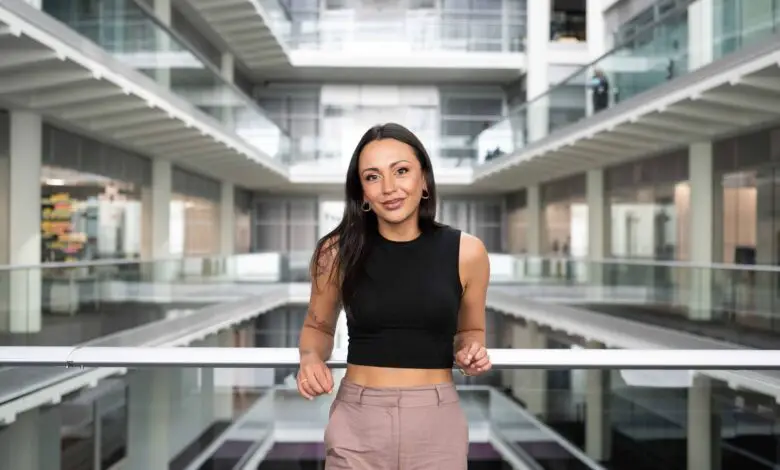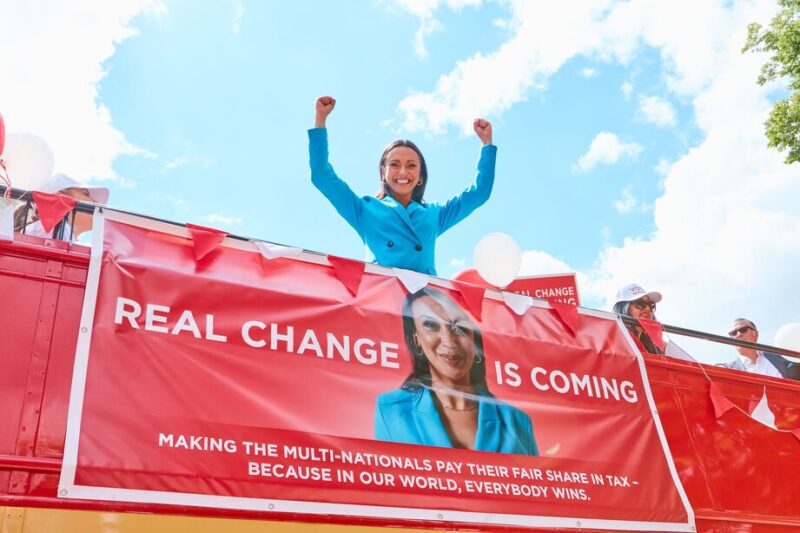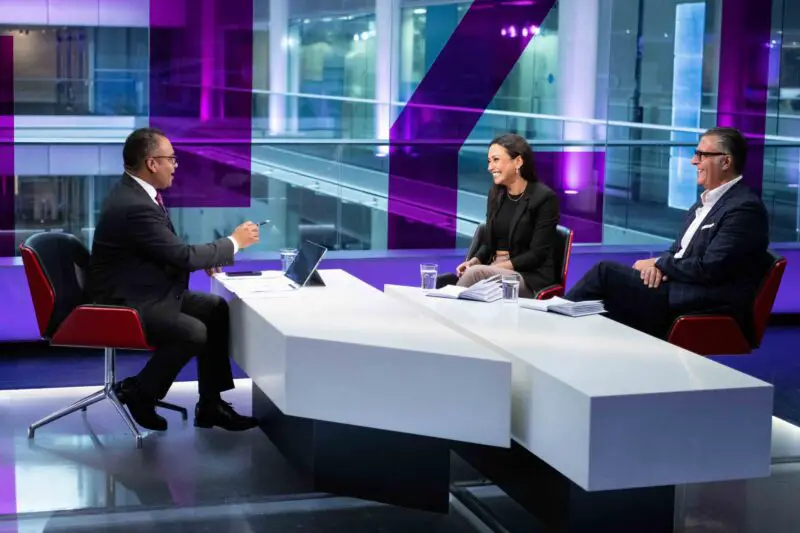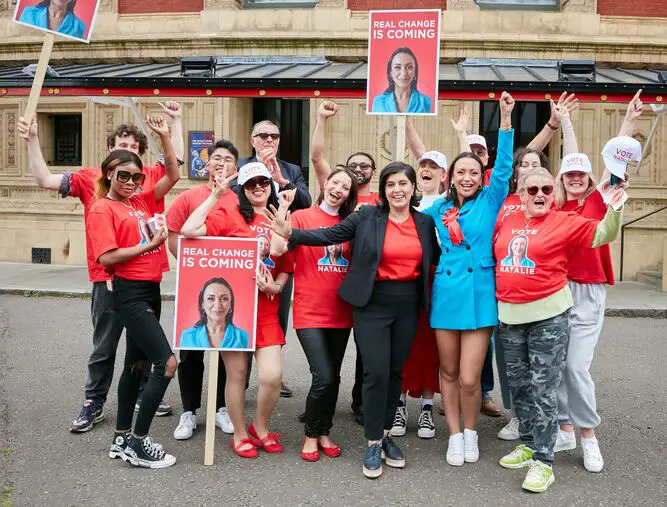
Natalie Balmain: Candidate with health conditions become alternative Prime Minister
Channel 4 recently aired a brand new six-part series that aimed to lift the lid on what it’s like to be Prime Minister. The show included three candidates with hidden disabilities and health conditions, one of whom, Natalie Balmain. was elected Britain’s first alternative Prime Minister.
Our writer, Zubee Kibria got the opportunity to interview the winner about her career, the challenges she faces living with a health condition, starting a business and what her experience was like being on Make Me Prime Minister.
Natalie Balmain living with health conditions
Please can you tell us a bit about yourself?
I am a 36-year-old woman of mixed-racial heritage from Manchester. I love music and I am a big fan of Michael Jackson and Janet Jackson, and everything from 90s hip hop to Queen and in between.
I’ve spent most of my career working for the NHS in communications. I live with my Jack Russell/chihuahua cross, Tito, who I rescued in 2017.
I have lived, struggled and thrived with depression and generalised anxiety disorder since I lost my Mum to cancer when I was just five years old.
Three months before my 21st birthday I was diagnosed with Type 1 diabetes, and now I am going through an ADHD assessment pathway.
These experiences have left me with an overwhelming desire to love and help people where I can.
What challenges do you face with your disability/health condition and how do you overcome them?
Living with Type 1 Diabetes is a bit like walking a tight-rope – keeping your blood glucose in range when you’re up against a myriad of factors that affect them (everything from food to stress, your period, exercise and even temperature) requires 24/7 focus – and when you add in burnout and depression it’s a bit like walking a tightrope that’s on fire.
Caring for yourself constantly can seem impossible at times. So for me, a positive outlook is vital.
You have to be kind to yourself and not beat yourself up when things don’t go quite right.
Peer support is also really helpful. I am very active in diabetes communities on social media and having contact with people who understand what you are going through is a great comfort.
Natalie Balmain on her adaptive clothing line Type 1 Clothing,
Please can you tell us a bit about your adaptive clothing line and how that came about?
In 2017, I launched an adaptive clothing line, Type 1 Clothing, making really fierce fashion for women with type 1 diabetes, which also allowed them to do their injections more easily or wear their insulin pumps without having to stuff them in their bras inside their dress.
It was an invention of necessity really. I just hated having to go to a public bathroom when I was out to pull my trousers down and inject.
I felt it perpetuated an idea that I SHOULD go and hide away from sight while I gave myself the medicine that keeps me alive.
I didn’t like that and I wanted to invent clothes that allowed people to simply unzip a bit on their trousers and do their injection wherever they want. We should be normalising this and not making people feel ashamed to give their life-saving injections in public.
Natalie Balmain on Make Me Prime Minister
What or who interested you to get into politics?
I think I have always naturally been a bit of a social justice warrior. I have very strong empathy, so fighting for fairness and equality in life is something that my friends and family have always known me for.
However, I would say I developed my interest in politics over years of working in the charity and public sector, where I gained a real insight into both the hard work happening on the ground, but also the system failings that were ultimately letting down both service providers and service users.

What motivated you to want to apply for the show and what did you enjoy most about your experience?
I actually wasn’t really sure that I did want to do the show at first. It was my brother who sent me the casting poster in a message with just three words: “Go go go”. I sat on it for a few days and thought about it, because I wasn’t sure I had the guts to put myself out there and be judged like that.
But I thought there was probably no harm in just applying and seeing what happened, so I did – and very quickly found myself packing to go to London for six weeks!
For me, the best bit about doing the show was just the experience of it and the opportunity itself.
I know that opportunities to do something crazy like this, meet so many amazing people (friends for life) and have the chance to learn from people at the very top of their game, come once in a lifetime, if that.
When things got tough in the challenges, which they did, I just reminded myself to enjoy every minute.

In the first episode you put yourself forward to be Prime Minister. How did you find taking on that role and what did you learn from it?
I don’t think anybody really wanted to go first as Prime Minister in episode one because we had no idea what was coming.
But when I heard that the subject was education, an area I feel so passionately about, I really wanted to do it and any nerves about going first really just went out of the window. I treated the challenges seriously, so to me, I was there to do a good job.
My massive learning curve in that episode was obviously what to do when the press tries to back you into a corner.
I had not come into the media launch with any desire to remove languages from the curriculum, but when they press you for an answer on what will have to give in order to find time in the curriculum, you can’t give a suggestion or a hypothesis that hasn’t been carefully thought through beforehand, because that will become your headline.
I do think that was the area in which I grew the most throughout the show.
As a Prime Minister, if you had the chance to make a difference for disabled people, what law would you pass?
It’s not a new law, as the Health and Social Care Act was passed some time ago, but from experience, I know that we have still not created enough robust processes to enable effective working between health and social services in many areas.
There are still many places where people slip into the gaps between services (such as Looked After Children with complex mental health needs) and I think we need to do a complete audit of both NHS and Social Care crossover/handover processes to understand the mechanisms that aren’t working and how to repair them.
So many services have their hands tied by ineffective processes when they just want to help their service users.
What was it like working with Alastair Campbell and Sayeeda Warsi?
Working with Alastair and Sayeeda was both terrifying and incredible. I have such huge respect for both of them in terms of their intellect, careers and achievements.
The idea of being judged by them was terrifying and I just really hoped that they would see some potential in me!
Getting to know them throughout filming was just brilliant. I felt very seen by Alastair in our one-to-one interview and I had a great girls day out with Sayeeda on my battle bus! They are both so warm and such amazing mentors and they make a very funny double act!

As part of the final, you heard from former Prime Ministers, Tony Blair and David Cameron. How was that and what advice did you take away from them?
It was so surreal to hear them both say hello to us. We all just thought we were about to get video messages from our families as we had been away from them for so long, so that was quite a shock.
I remember thinking that for both of them, the role of being Prime Minister was clearly more than just a job. It was intrinsic – a drive inside them that was so powerful.
I came away from watching the video feeling both reminded that it won’t be easy, but also emboldened to continue. I did ask if I could keep a copy to use as a personal pep talk whenever I needed it!
Make Me Prime Minister is available to watch on All 4.
You can follow Natalie on Twitter and Instagram.
Interview by Zubee Kibria
More on Disability Horizons…
- Meet the candidates representing disability in new show Make Me Prime Minister
- Adaptive clothing solutions: how my daughter inspired me to start a business
- The Hidden Disabilities Sunflower lanyard scheme helping people with hidden disabilities
- Buy our range of cool disability stickers on the Disability Horizons shop